Poetry Fiction Nonfiction
Idaho
MFA in Creative Writing
3 YEARS FULLY FUNDED
WORK WITH AWARD-WINNING FACULTY
Thomas Dai, Chris Drangle, Leah Hampton, Michael McGriff, Oscar Oswald, Alexandra Teague
STUDY WITH DISTINGUISHED VISITING WRITERS
Gabino Iglesias, Luis Alberto Urrea, Mary Szybist, Roger Reeves, Maggie Nelson, Dorianne Laux
JOIN THE EDITORIAL STAFF OF FUGUE


Apply by January 15, 2025
LEARN MORE


A
Note of Welcome from Alexandra Teague & Michael McGriff CO-DIRECTORS OF THE CREATIVE WRITING PROGRAM


Thank you for your interest in the Creative Writing MFA Program at the University of Idaho: the premier fully funded, three-year MFA program in the Northwest. Situated in the panhandle of Northern Idaho in the foothills of Moscow Mountain, we offer the time and support to train in the traditions, techniques, and practice of nonfiction, poetry, and fiction. Each student graduates as the author of a manuscript of publishable quality after undertaking a rigorous process of thesis preparation and a public defense. Spring in Moscow has come to mean cherry blossoms, snowmelt in Paradise Creek, and the head-turning accomplishments of our thesis-year students. Ours is a faculty of active, working writers who relish teaching and mentorship. We invite you in the following pages to learn about us, our curriculum, our community, and the town of Moscow. If the prospect of giving yourself three years with us to develop as a writer, teacher, and editor is appealing, we look forward to reading your application.

write in idaho
The University of Idaho
Creative Writing Program
Department of English
875 Perimeter Drive MS 1102
Moscow, Idaho 83844-1102
Creative Writing Program
creativewriting@uidaho.edu
College of Graduate Studies graduateadmissions@uidaho.edu


The following pages are designed to answer Frequently Asked Questions.
Should you have further queries about the MFA Program after exploring this pamphlet, email creativewriting@uidaho.edu.
For questions pertaining to your online MFA application, direct your correspondence to the College of Graduate Studies (COGS): graduateadmissions@uidaho.edu.

Ancestral Recognition
The region surrounding the University of Idaho is the ancestral land of both the Coeur d’Alene and Nez Perce peoples, and its campus in Moscow sits on unceded lands guaranteed to the Nez Perce people in the 1855 Treaty with the Nez Perce. As a land grant university, the University of Idaho also benefits from endowment lands that are the ancestral homes to many of the West’s Native peoples. The Department of English and Creative Writing Program acknowledge this history and share in the communal effort to ensure that the complexities and atrocities of the past remain in our discourse and are never lost to time.
We invite you to think of the traditional “land acknowledgment” statement through our MFA alum CMarie Fuhrman’s words [ click ].
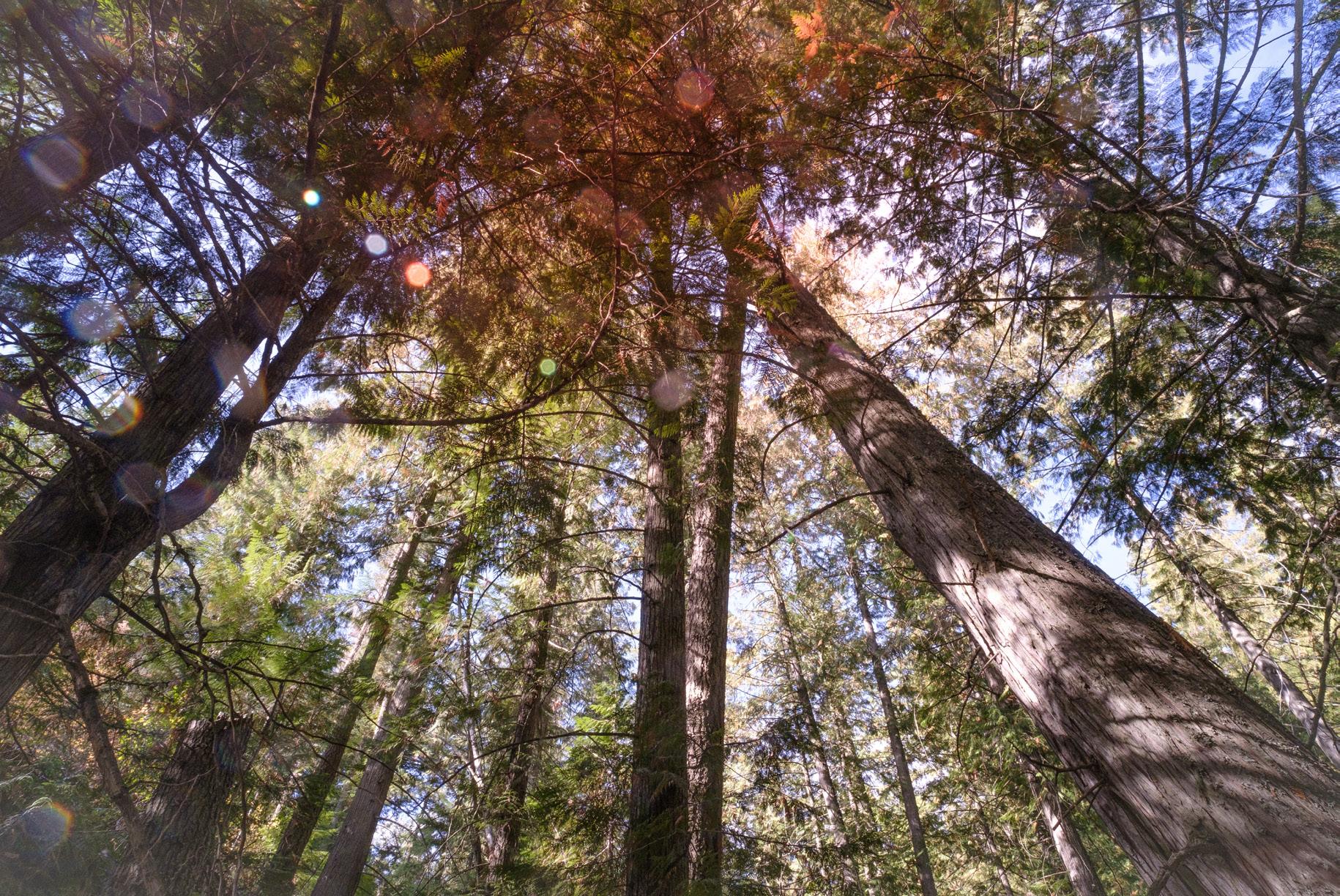
The Palouse (/pə’lus/ pə-LOOSS)
Situated in the foothills of Moscow Mountain amid the rolling terrain of the Palouse (the ancient silt beds unique to the region), our location in the vibrant community of Moscow, Idaho, boasts a lively and artistic local culture. Replete with independent bookstores, coffee shops, art galleries, restaurants and breweries, (not to mention an historic art house cinema, organic foods co-op, and renowned seasonal farmer’s market), Moscow is a friendly and affordable place to live. Ten minutes from campus lie 110 miles of four-season multi-use wilderness trails (maintained by our local mountain bike association, MAMBA) that offer access to moose sightings, creeks, waterfalls, and pine forests. Outside of town, we’re lucky to have many opportunities for hiking, swimming, skiing, rafting, camping, and general exploring—from nearby Kamiak Butte to renowned destinations like Glacier National Park, the Snake River, the Frank Church River of No Return Wilderness Area, and Nelson, BC. As for more urban getaways, Spokane, Washington, is only a ninety-minute drive, and our regional airline, Alaska, makes daily flights to and from Seattle that run just under an hour.

THREE YEARS WITH FULL FUNDING
THREE YEARS TO WRITE
Regardless of where you are in your artistic career, there is nothing more precious than time. A three-year program gives you time to generate, refine, and edit a body of original work. Typically, students have a light third year, which allows for dedicated time to complete and revise the Creative Thesis (48 manuscript pages for those working in poetry, 100 pages for those working in prose).
TEACHING ASSISTANTSHIPS
All students admitted to the MFA program are fully funded through Teaching Assistantships. All Assistantships come with a full tuition waiver and a stipend, which for the current academic year is roughly $16,000 (for a total funding package of approximately $40,000). Over the course of three years, MFA students teach a mix of composition courses, sections of Introduction to Creative Writing (ENGL 290), and additional writing courses, as departmental needs arise. Students may also apply to work in the Writing Center as positions become available. When you join the MFA program at Idaho, you receive teacher training prior to the beginning of your first semester. We value the role MFA students serve within the department and consider each graduate student as a working artist and colleague. Current teaching loads for Teaching Assistants are two courses per semester. Some members of the Fugue editorial staff receive course reductions to offset the demands of editorial work. We also award a variety of competitive and need-based scholarships to help offset general living costs. In addition, we offer three outstanding graduate student fellowships: The Hemingway Fellowship, Centrum Fellowship, and Writing in the Wild Fellowship. Finally, our Graduate and Professional Student Association offers extra-departmental funding in the form of research and travel grants to qualifying students throughout the academic year.
What You Study
WORKSHOP TECHNIQUES TRADITIONS LITERATURE
WORKSHOP
Our workshop classes are small by design (typically twelve students or fewer) and taught by core and visiting MFA faculty. No two workshop experiences look alike, but what they share are faculty members committed to the artistic and intellectual passions of their workshop participants.
TECHNIQUES
Techniques studios are developed and taught by core and visiting MFA faculty. These popular courses are dedicated to the granular aspects of writing, from deep study of the poetic image to the cultivation of independent inquiry in nonfiction to the raptures of research in fiction. Such courses are heavy on generative writing and experimentation, offering students a dedicated space to hone their craft in a way that is complementary to their primary work.
TRADITIONS
Traditions seminars are developed and taught by core and visiting MFA faculty. These generative writing courses bring student writing into conversation with a specific trajectory or “tradition” of literature, from life writing to outlaw literature to the history of the short story, from prosody to postwar surrealism to genre-fluidity and beyond. These seminars offer students a dynamic space to position their work within the vast and varied trajectories of literature.
LITERATURE
Literature courses are taught by core Literature and MFA faculty. Our department boasts field-leading scholars, interdisciplinary writers and thinkers, and theory-driven practitioners who value the intersection of scholarly study, research, humanism, and creative writing.
Flexible Degree Path
POETRY, FICTION, NONFICTION
Focus in one genre, or study across genres
Students are admitted to our program in one of three genres, Poetry, Fiction, or Nonfiction. By design, our degree path offers ample opportunity to take Workshop, Techniques, Traditions, and Literature courses in any genre. Our faculty work and publish in multiple genres and value the slipperiness of categorization. We encourage students to write in as broad or focused a manner as they see fit. We are not at all interested in making writers “stay in their lanes,” and we encourage students to shape their degree paths in accordance with their passions.

Our Degree Requirements offer students maximum flexibility in terms of how they progress through the Program. This degree path allows students to focus their studies in ways that best reflect their artistic interests and obsessions as well as their lines of intellectual and critical inquiry. In effect, students may be as genre-focused or as multi-genre as they please.
Graduate-level Workshop courses in Fiction, Poetry, and/or Nonfiction
Techniques and Traditions courses (may be open-genre, or genre-specific)
Internships: Fugue, Confluence Lab, Composition Teaching Practicum, etc.
Literature courses
---> ENGL 523: Composition Theory may be applied as a Literature credit
Elective courses
---> Most graduate-level university courses are accepted (500-level and above) ---> Additional Workshop, Techniques, and Traditions courses may be applied ---> Relevant courses from other departments may be applied, if approved ---> Thesis credits may not be applied
Thesis (ENGL 500)
*Of the 21 total credits of required Literature and Elective courses, up to 6 credits of coursework in 400-level courses (upper-division undergrad) may be applied.
Environmental Humanities
Expertise in the Environmental Humanities is a clear strength of our department. Faculty members Erin James and Jennifer Ladino are internationally recognized leaders in this field and have won awards for their scholarship on place-based writing, the emotions and affects of environmental crises, and the potential uses of contemporary narratives in environmental activism and policy making. Our literature faculty regularly offer “green” graduate courses, including those on topics as varied as ecocriticism and environmental humanities theory, rural American literature, travel writing, postcolonial environmental narratives, dystopia and apocalypse, animal studies, and climate change fiction. We also value interdisciplinary and innovative environmental research, especially when produced in collaboration with colleagues working on environmental issues across our campus and region. This emphasis on innovation extends to student work; recent environmentally focused projects by English graduate students include mapping caribou extirpation in our state, the collection and analysis of first-hand testimonies of the experience of wildfire, and the publication of original climate change fiction.

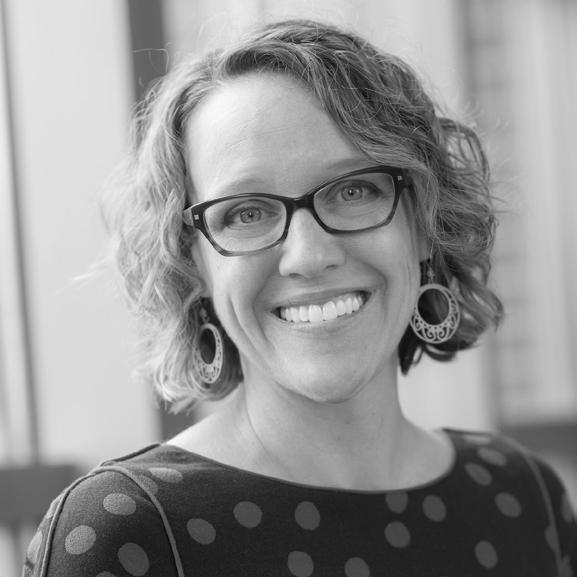
Confluence Lab
Founded by English professors Jennifer Ladino and Erin James and College of Natural Resources professor Teresa Cavazos Cohn, The Confluence Lab at the University of Idaho incubates and implements creative interdisciplinary research projects that bring together scholars in the humanities, social sciences, and sciences—as well as community members—to engage environmental issues in the state of Idaho. Our primary goal is to facilitate idea exchange, and our central premise is that the tools of the humanities—especially those related to storytelling, representation, emotions and communication—can help develop holistic approaches to these issues from the ground up. Our projects investigate conceptual and communication barriers that underlie debates about controversial issues especially relevant to rural communities, such as public land use, natural resource management, wildfires, drought, energy infrastructure and the causes and effects of climate change.
Symposium
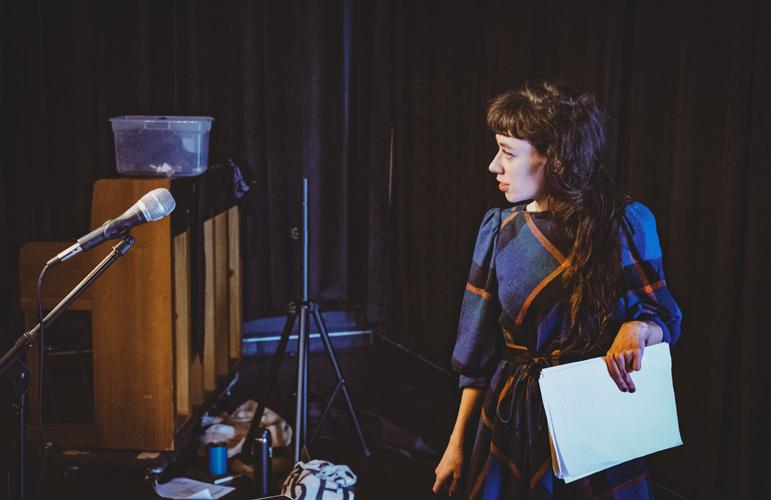
The Symposium Reading Series is a longstanding student-run initiative that offers every second-year MFA candidate an opportunity to read their works-in-progress in front of peers, colleagues, and community members. This reading and Q & A event prepares students for the third-year public thesis defense. These off-campus events are fun and casual, exemplifying our community centered culture and what matters most: the work we’re all here to do.
“The symposium was one of my favorite parts of Idaho’s MFA program—I shared my symposium with a close friend I made in the program, a Nonfiction candidate named Laura Zak. Our symposium was at Professor McGriff’s house, and his living room was filled with poets, essayists, fiction writers, and friends of the program. During my first year, I attended my peers’ symposia and was blown away by the second-year students’ work; listening in the audience, I truly felt like I was part of a writing community. In turn, reading at my own symposium was one of the first times I felt like a “real” writer. Several years after my symposium, I still remember specific questions members of my cohort asked about the story I read—it was one of the first times I experienced an audience deeply engaging with work I’d written. The symposium is a distillation of what is exceptional about the MFA program: not only are you experiencing the great pleasure of becoming a writer, you’re also experiencing the greater pleasure of becoming part of a writing community.
“
Sam Burns, Class of 2019
Pop-Up Prose
Pop-Up Prose was founded by Idaho MFA students Lauren Westerfield and Laura Zak in 2016. This student-run reading series carries forward the spirit of being “irreverent, itinerant, experimental, queer-hearted, and queer-minded.” Pop-Up Prose is curated by MFA students, undergrads, and community members, exemplifying our local arts culture. This open-genre venue features writers and artists of all stripes, and it stretches and questions the boundaries of self and self-expression.


Thesis Defense

Laur Freymiller, Class of 2023
The MFA experience culminates with each student writing and defending a creative thesis. For prose writers, theses are 100 pages of creative work; for poets, 48 pages. Though theses often take the form of an excerpt from a book-in-progress, students have flexibility when it comes to determining the shape, form, and content of their creative projects. In their final year, each student works on envisioning and revising their thesis with three committee members, a Major Professor (core MFA faculty) and two additional Readers (core UI faculty). All students offer a public thesis defense. These events are attended by MFA students, faculty, community members, and other invitees. During a thesis defense, a candidate reads from their work for thirty minutes, answers artistic and critical questions from their Major Professor and two Readers for forty-five minutes, and then
answer audience questions for thirty minutes. Though formally structured and rigorous, the thesis defense is ultimately a celebration of each student’s individual talent.
“
To have three years set aside to craft a quality manuscript under the mentorship of successful, supportive writers changed me and my writing in a profound way. It was then so meaningful to stand before my peers, friends, family, and thesis committee to present and defend my book manuscript. In the weeks leading up to my thesis defense, I reflected on all the aspects of the MFA program that made my thesis what it was: books, classes and workshops, friendships, edits and rewrites, etc. My thesis defense stands out as one of the more special events of my life.
Stacy Boe Miller, Class of 2019, 2022-2024 Moscow Poet Laureate
DISTINGUISHED VISITING WRITERS SERIES
Participate in seminars with leading writers in the field
Each year, we bring several Distinguished Visiting Writers to campus. DVWs interface with our writing community through public readings, on-stage craft conversations hosted by core MFA faculty, and small seminars geared toward MFA candidates.
Recent Distinguished Visiting Writers
Maggie Nelson, Roger Reeves, Luis Alberto Urrea, Brian Evenson, Kate Zambreno, Dorianne Laux, Teju Cole, Tyehimba Jess, Claire Vaye Watkins, Naomi Shihab Nye, David Shields, Rebecca Solnit, Gabrielle Calvocoressi, Susan Orlean, Natasha Tretheway, Jo Ann Beard, William Logan, Aisha Sabatini Sloan, Gabino Iglesias, Danielle Geller, and Marcus Jackson, among several others.



JOIN THE EDITORIAL STAFF OF FUGUE
About the Journal
Established in 1990 at the University of Idaho, Fugue publishes poetry, fiction, essays, hybrid work, and visual art from established and emerging writers and artists. Fugue is managed and edited entirely by University of Idaho graduate students, with help from graduate and undergraduate readers. We take pride in the work we print, the writers we publish, and the presentation of both print and digital content. We hold an annual contest in both prose and poetry, judged by two nationally recognized writers. Past judges include Pam Houston, Dorianne Laux, Rodney Jones, Mark Doty, Rick Moody, Ellen Bryant Voigt, Jo Ann Beard, Rebecca McClanahan, Patricia Hampl, Traci Brimhall, Edan Lepucki, Tony Hoagland, Chen Chen, Aisha Sabatini Sloan, sam sax, and Leni Zumas. The journal boasts a remarkable list of past contributors, including Steve Almond, Charles Baxter, Stephen Dobyns, Denise Duhamel, Stephen Dunn, B.H. Fairchild, Nick Flynn, Terrance Hayes, Campbell McGrath, W.S. Merwin, Sharon Olds, Jim Shepard, RT Smith, Virgil Suarez, Melanie Rae Thon, Natasha Trethewey, Philip Levine, Anthony Varallo, Robert Wrigley, and Dean Young, among many others.



MFA Student Opportunities
The Academy of American Poets University Prize
The Creative Writing Program is proud to partner with the Academy of American Poets to offer an annual Academy of American Poets University Prize to a student at the University of Idaho. The Prize was established in 2009 with a generous grant from Karen Trujillo and Don Burnett.
Many of our nation’s most esteemed and celebrated poets won their first recognition through an Academy of American Poets Prize, including Diane Ackerman, Toi Derricotte, Mark Doty, Tess Gallagher, Louise Glück, Jorie Graham, Kimiko Hahn, Joy Harjo, Robert Hass, Li-Young Lee, Gregory Orr, Sylvia Plath, Mark Strand, and Charles Wright.
Recent recipients include:
2024
Miriam Akervall
Selected by Devon Walker-Figueroa
2023
Libby Croce
Selected by Kimberly Johnson
2022
Crystal Cox
Selected by Andrew Grace
2021
Steven Pfau
Selected by Meg Freitag
2020
Ryan Downum
Selected by Malena Mörling
2019 Caitlyn Curran
Selected by Marcus Jackson
MFA Student Opportunities
Writing in the Wild
This annual fellowship gives two MFA students the opportunity to work in Idaho’s iconic wilderness areas. The fellowship fully supports one week at either the McCall Outdoor Science School (MOSS), which borders Payette Lake and Ponderosa State Park, or the Taylor Wilderness Research Station, which lies in the heart of the Frank Church River of No Return Wilderness Area. Both campuses offer year-round housing. These writing retreats allow students to concentrate solely on their writing. Because both locations often house researchers, writers will also have the opportunity to interface with foresters, geologists, biologists, and interdisciplinary scholars.
The Hemingway Fellowship
This fellowship offers an MFA Fiction student full course releases in their final year. The selection of the Hemingway Fellow is based solely on the quality of an applicant’s writing. Each year, applicants have their work judged blind by a noted author who remains anonymous until the selection process has been completed. Through the process of blind selection, the Hemingway Fellowship Fund fulfills its mission of giving the Fellow the time they need to complete a substantial draft of a manuscript.
Centrum Fellowships
Those selected as Centrum Fellows attend the summer Port Townsend Writers’ Conference free of charge. Housed in Fort Worden (which is also home to Copper Canyon Press), Centrum is a nonprofit dedicated to fostering several artistic programs throughout the year. With a focus on rigorous attention to craft, the Writers’ Conference offers five full days of morning intensives, afternoon workshops, and craft lectures to eighty participants from across the nation. The cost of the conference, which includes tuition, lodging, and meals, is covered by the scholarship. These annual scholarship are open to all MFA candidates in all genres.
Award-Winning Faculty

We teach our classes first and foremost as practitioners of the art. Full stop. Though our styles and interests lie at divergent points on the literary landscape, our common pursuit is to foster the artistic and intellectual growth of our students, regardless of how or why they write. We value individual talent and challenge all students to write deep into their unique passions, identities, histories, aesthetics, and intellects. We view writing not as a marketplace endeavor but as an act of human subjectivity. We’ve authored or edited several books across the genres. Here are a few of them.

[ominous music intensifying]
Alexandra Teague
Poetry / Persea / 2024

F*ckface and Other Stories
Leah Hampton
Fiction / Henry Holt / 2020

Take My Name but Say it Slow
Thomas Dai
Nonfiction / Norton / 2025

Irredenta
Oscar Oswald
Poetry / Nightboat / 2021

Mortal Geography
Alexandra Teague
Poetry / Persea / 2010

Angel Sharpening its Beak
Michael McGriff
Poetry / Carnegie Mellon / 2025

Early Hour
Michael McGriff
Poetry / Copper Canyon / 2017

Spin n i n g
Tea C u p s
Spinning Tea Cups
Alexandra Teague
Nonfiction / OR State UP / 2023

The Principles behind Flotation
Alexandra Teague
Fiction / Skyhorse / 2017

Eternal Sentences
Michael McGriff
Poetry / Arkansas / 2021

To Build My Shadow a Fire
Michael McGriff, editor
Poetry / Truman State UP/ 2010
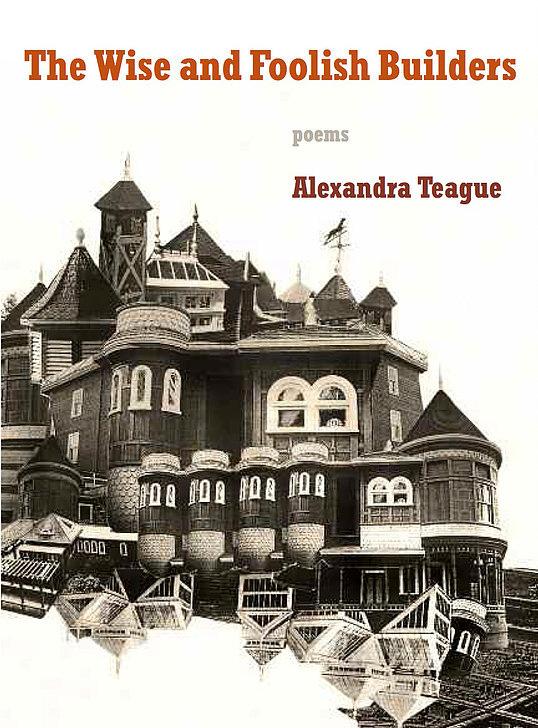
The Wise and Foolish Builders
Alexandra Teague
Poetry / Persea / 2015

Bullets into Bells
Alexandra Teague, et al.
Poetry / Beacon / 2017

The Sorrow Gondola
Michael McGriff, translator
Poetry / Green Integer / 2010
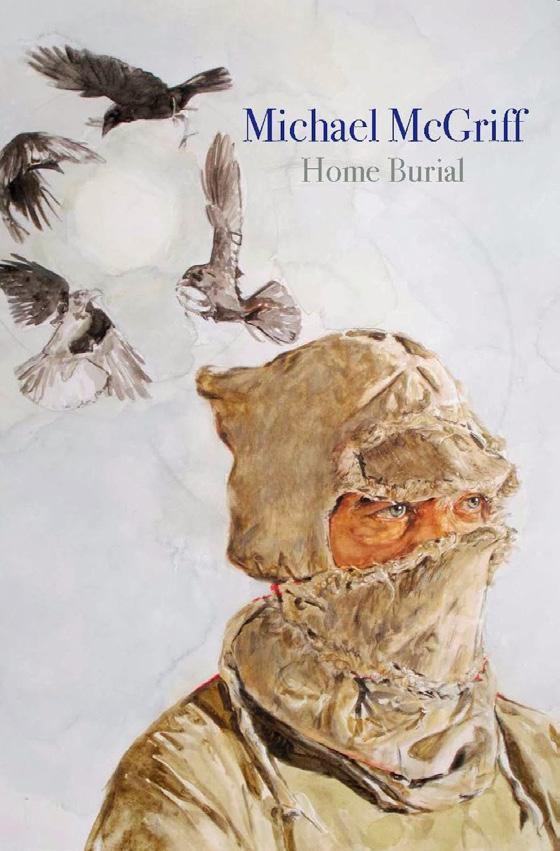
Home Burial
Michael McGriff
Poetry / Copper Canyon / 2012

Broadsided Press: 15 Years...
Alexandra Teague, et al.
Visual Art / Provincetown Arts / 2022

Dismantling the Hills
Michael McGriff
Poetry / Pittsburgh / 2008

Black Postcards
Michael McGriff
Poetry / Willow Springs / 2017

Our Secret Life in the Movies
Michael McGriff & J.M. Tyree Fiction / Deep Vellum / 2014

Or What We’ll Call Desire
Alexandra Teague
Poetry / Persea / 2019


Thomas Dai nonfiction
Assistant Professor

“ “I teach courses that support the enigma of writerly attempt, helping students move their works-in-progress forward—n ot directly or proscriptively, but via a meandering path of inquiry that nonetheless offers up useful conclusions. In workshops, I encourage students to approach writing and craft as impure, contingent, and shaped by their social and cultural contexts: writing as a way into the world and not a silo within it. My goal is for every participant, not just the writer, to see a work more clearly by class’s end, even as certain aspects of our writing remain unclarifiable to us, mysterious.
THOMAS DAI ’s first book, Take My Name but Say it Slow: Essays, is forthcoming in 2025 from Norton, and his writing has appeared in Conjunctions, The Georgia Review, Guernica, Lithub, New England Review, The Rumpus, The Yale Review, and elsewhere. He is the recipient of fellowships and awards from Lambda Literary, the Sewanee Writers’ Conference, and the Virginia Center for the Creative Arts, where he was the 2023 Steven Petrow LGBTQ+ Fellow. In addition to his work as a writer, Thomas is a scholar of race, sexuality, and literature who’s published his critical writing in ASAP/J and GLQ: A Journal of Lesbian and Gay Studies. He holds a PhD in American Studies from Brown University and an MFA in creative nonfiction from the University of Arizona. Current and enduring areas of interest include the personal essay, Asian American studies, literatures of space and place, nature and science writing, hybrid visual narratives, and queer theory. He is from Knoxville, Tennessee.

Chris Drangle fiction and nonfiction Instructor

“As a creative writing teacher, I try to decenter my authority in favor of creating communal and collaborative learning environments. Workshops are for the authors, and by engaging with nontraditional formats and focusing on process over product, I hope that my classes take on the goals of the artists within them. My own interests include social-justiceoriented realism, speculative fiction, and the finicky (or possibly nonexistent) line between “genre” and “literary” narratives.
“CHRIS DRANGLE is a writer from Arkansas. He studied creative writing at Tulane University, Cornell University, and Stanford University. His fiction has appeared in a variety of magazines and journals, including the Kenyon Review, One Story, Granta, Oxford American, and others. He has been a Wallace Stegner Fellow, a National Endowment for the Arts Fellow, a Jentel Arts Resident, a Pushcart Prize recipient, and a Bread Loaf Scholar. After teaching for a decade in roles as varied as Jones Lecturer at Stanford, high school instructor in Kazakhstan, and teacher in various online programs for beginning and advanced writers, Chris joined the University of Idaho as a Visiting Assistant Professor of Prose in 2022 and currently serves as Instructor of English and Creative Writing.

Leah
Hampton
fiction and nonfiction
Assistant Professor

“I teach fiction and nonfiction, and I love working with graduate students one on one. My teaching is conference based and centers your writing goals, with workshops designed to be as inclusive and flexible as possible. As a first-generation high school graduate and former community college instructor, I’m especially interested in mentoring writers who come to the MFA via circuitous or nontraditional paths. Topics of particular interest include rurality and social/climate justice.
“LEAH HAMPTON , a former Environmental Humanities Fellow in Residence at the University of Idaho, currently serves as core faculty in the Creative Writing Program. Her collection F*ckface and Other Stories was released by Henry Holt and named one of the best books of 2020 by The Paris Review, the New York Public Library, Slate, and others. A graduate of the Michener Center for Writers, she has been awarded multiple prizes and fellowships including UT-Austin’s Keene Prize for Literature and the Phillip Roth residency at Bucknell University’s Stadler Center for Poetry. Her work has appeared in Ecotone, Guernica, McSweeneys, Electric Literature, and elsewhere. She divides her time between the Palouse and the Blue Ridge Mountains.

Michael McGriff
poetry
Associate Professor & Fugue Advisor
Co-Director, Creative Writing Program
“ “

As a workshop leader, I strive to hold up a mirror to the quirks, obsessive qualities, vernacular movements, and elements of culture distinct to the writing at hand. The rough edges, strange pathways, unexplainable impulses, and obsessive elements of art are, sadly, some of the first things MFA students are traditionally pressured to edit out of their work. I encourage students to lean into those elements. For me, the classroom is a laboratory where the imperative is to take risks and experiment, with the faith that all results move the writer forward.
MICHAEL MCGRIFF was born and raised in Coos Bay, Oregon, and studied creative writing at the University of Oregon, The Michener Center for Writers, and Stanford University. He is the co-author, with J. M. Tyree, of the linked story collection Our Secret Life in the Movies, which was selected as one of NPR’s Best Books of 2014. His poetry collections include Angel Sharpening its Beak, Eternal Sentences, Early Hour, Black Postcards, Home Burial, and Dismantling the Hills. He is the translator of Tomas Traströmer’s The Sorrow Gondola and editor of a volume of David Wevill’s essential writing, To Build My Shadow a Fire. From 20092014 he published and edited Tavern Books, a nonprofit literary press dedicated to poetry in translation and the revival of out-of-print contemporary classics. He is a former Stegner Fellow and Jones Lecturer at Stanford University, and his work has been honored with a Lannan Literary Fellowship, a New York Times Book Review Editors’ Choice, a Ruth Lilly Fellowship, and a grant from the National Endowment for the Arts. His writing has appeared in The New York Times, Poetry, Bookforum, The Believer, Tin House, American Poetry Review, Poetry London, and on NPR’s Weekend Edition Sunday and PBS NewsHour. He has taught creative writing at Stanford University, The Michener Center for Writers, and Lewis & Clark College, and for several years has mentored young writers as a Visiting Writer at American International School (Vienna) and in the Kenyon Review Young Writers Workshop. He is former Poetry Editor of Northwest Review.

Oscar Oswald poetry Instructor

“In my poetry workshops, I encourage poets to dig deep into their interests and find poetic friends. This notion of camaraderie across eras and within the classroom is important to me. I hope to hear honest questions, whether they be difficulties or doubts about a poem, or musings on a single line within a project underway. I am there to learn and listen. We are not here to correct a way of writing–instead, it’s about warm conversations and inspiring each other to again and again return to the blank page.
“OSCAR OSWALD is a poet and the author of Irredenta (Nighboat Books, 2021), an Editor’s Choice manuscript chosen by Kazim Ali. His poems have appeared in New England Review, Denver Quarterly, Seneca Review, Fence, Interim, Colorado Review, and elsewhere. He earned a PhD in English Literature and Creative Writing from the University of Nevada Las Vegas before joining the University of Idaho, where he is the Director of Undergraduate Recruitment and Retention. His courses focus on experimental literature, nature writing, and modernist poetry, applying his doctoral emphases on writers such as Henry David Thoreau, Walt Whitman, and Mina Loy to creative workshops. Outside the department, Oscar has been an editor the literary journal Witness as well as an Assistant Editor for Noemi Press. He enjoys hiking.

Alexandra Teague poetry
Professor
Associate Chair of English

“James Baldwin beautifully said that the purpose of art is to “lay bare the questions that have been hidden by the answers,” and I see that as one of the primary goals of teaching too. I try to help my students and myself ask better questions of our writing, the literature we’re reading, and the society and academic community we’re helping create. My particular interests include feminist and queer poetics, repetitive forms, prosody, modern and contemporary poetry, and interdisciplinary collaborations with music and art. My classes are sometimes informally linked with visual art, music, or other disciplines to help us consider what’s possible within our own medium of words.
“
Co-Director, Creative Writing Program
Co-Director, Women’s, Gender & Sexuality Studies
ALEXANDRA TEAGUE is most recently the author of [ominous music intensifying] (Persea, 2024) and the memoir Spinning Tea Cups (Oregon State University Press 2023). Her prior collections of poetry include Or What We’ll Call Desire (Persea, 2019), The Wise and Foolish Builders (Persea, 2015), and Mortal Geography (Persea, 2010), winner of the 2009 Lexi Rudnitsky Prize and 2010 California Book Award. She is also the author of the novel The Principles Behind Flotation (Skyhorse, 2017) and co-editor of the anthologies Bullets into Bells: Poets & Citizens Respond to Gun Violence (Beacon, 2017) and Broadsided Press: Fifteen Years of Poetic & Artistic Collaboration (Provincetown Arts Press, 2022). The recipient of a 2019 Civitella Ranieri Foundation Fellowship, the 2014 Missouri Review Jeffrey E. Smith Editors’ Prize, a 2011 National Endowment for the Arts Fellowship, and a 2006-2008 Stegner Fellowship at Stanford, Alexandra is a Professor in the BA in English and MFA in Creative Writing programs, as well Associate Chair of English and Co-Director of Women’s, Gender, & Sexuality Studies; she is also a senior editor for Broadsided Press. Her work has been praised in such publications as Booklist, The Huffington Post, and The New York Times as “a strong feminist penman to watch,” “formally impressive,” and “passionate, quirky, and righteously outraged.”

Students are the lifeblood of the MFA program. We’re proud of our their commitment to the art, their dedication to teaching, and their accomplishments, which include publishing in our nation’s top literary venues and securing book contracts from trade, university, and independent presses. Though we emphasize process over publishing during the course of a degree, what follows are some recent achievements by our storied alums.

Recent & Forthcoming Books | MFA Alums

All This Divide
Jory Mickelson
Poetry / Spuyten Duyvil Publishing / 2024

Brown Women Have Everything
Sayantani Dasgupta
Nonfiction / U North Carolina Press / 2024

The Entire Sky
Joe Wilkins
Fiction / Little, Brown / 2024

Depth Control
Lauren Westerfield
Nonfiction / Unsolicited Press / 2025

Salmon Weather
CMarie Fuhrman
Nonfiction / Columbus State U Press / 2025

Body Be Sound
Georgia Tiffany Poetry / Encircle Publications / 2023

The Striker and the Clock
Georgia Cloepfil
Nonfiction / Riverhead / 2024

Pastoral, 1994
Wilkins
Poetry / River River Books / 2025

With Midnight Down Your Throat
Caitlyn Curran
Poetry / Willow Springs Books / 2023

Cascadia Field Guide
CMarie Furhman
Poetry, Prose, Art / Mountaineers Books / 2023

SISSY

Sissy
Canese Jarboe
Poetry / Garden Door Press / 2024
LRD
Grant Maierhofer
Hybrid / Erratum Press / 2024
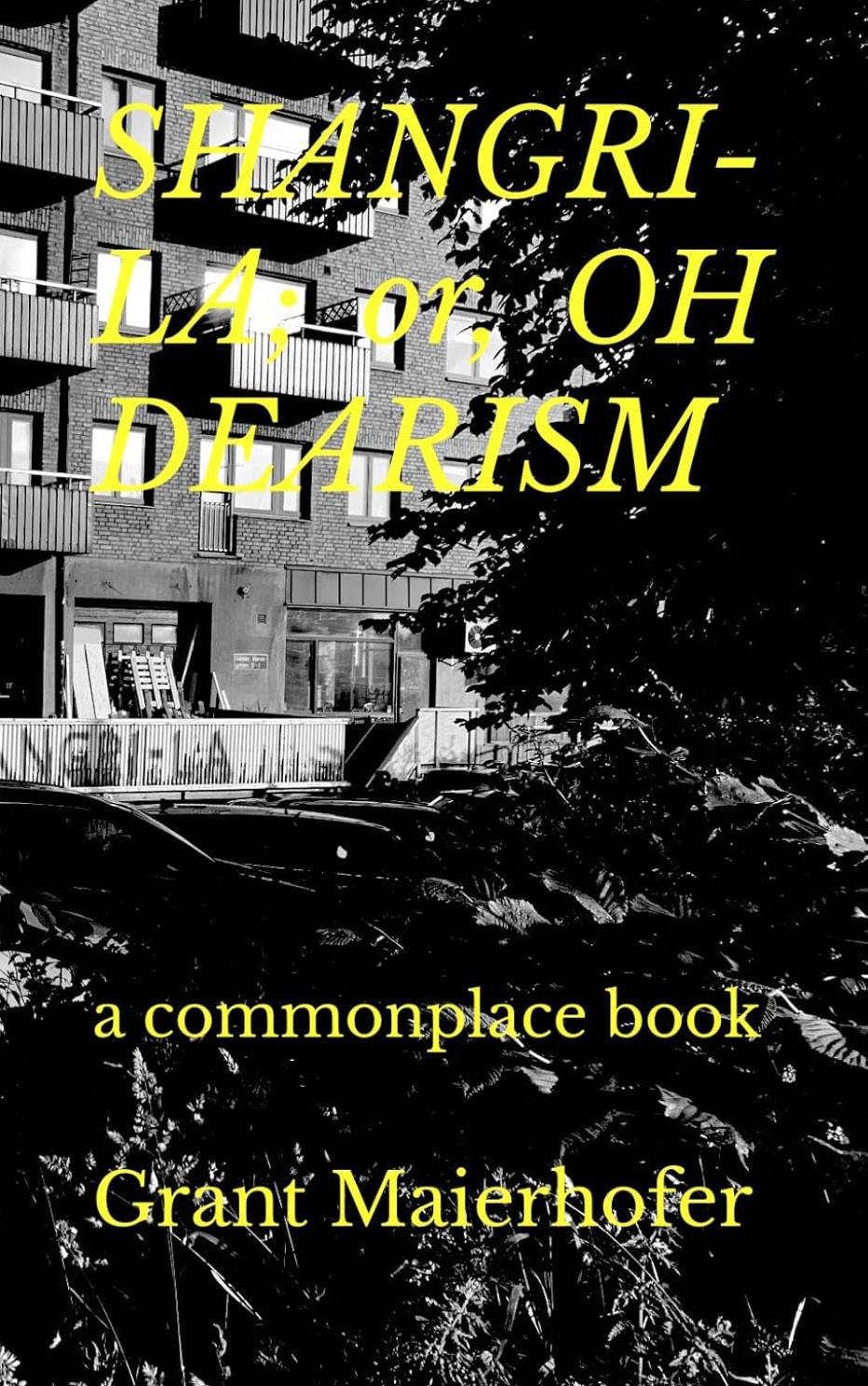
Shangrila; or, Oh Dearism
Grant Maierhofer
Hybrid / Lozenge Press / 2024

How Fear Came; or, The Jungle Notebooks
Grant Maierhofer
Hybrid / Lozenge Press / 2024

Vanishing Point; or, The Secret Histories
Grant Maierhofer
Hybrid / Lozenge Press / 2024

Sentence-Making
Grant Maierhofer
Hybrid / Feral Dove Books / 2024





















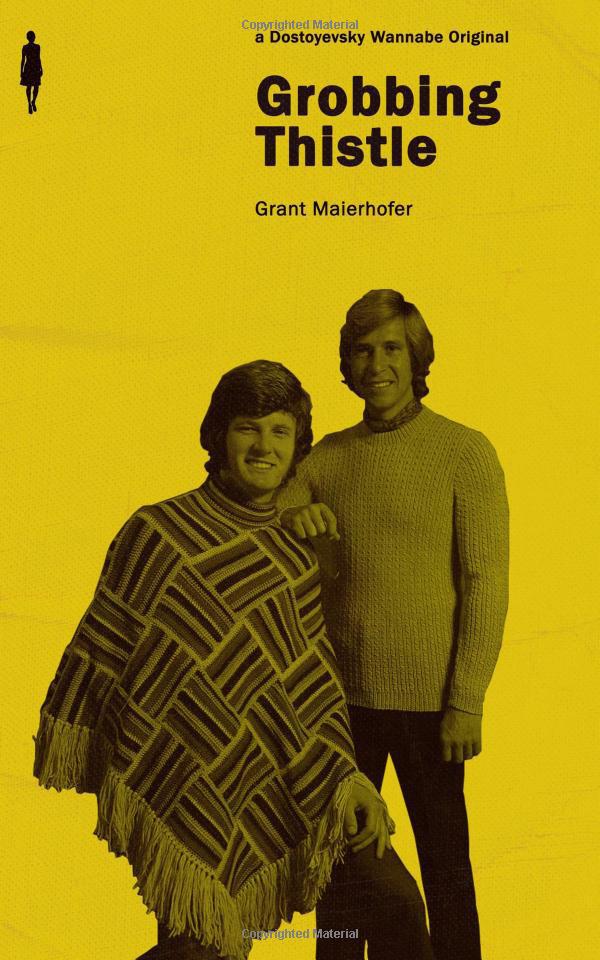




























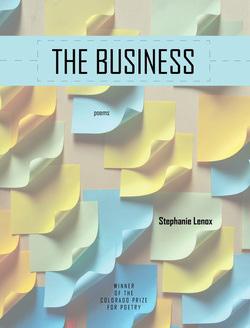





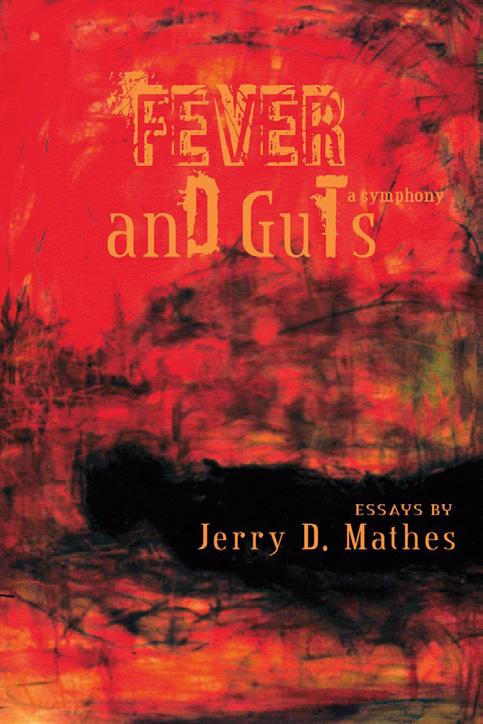
























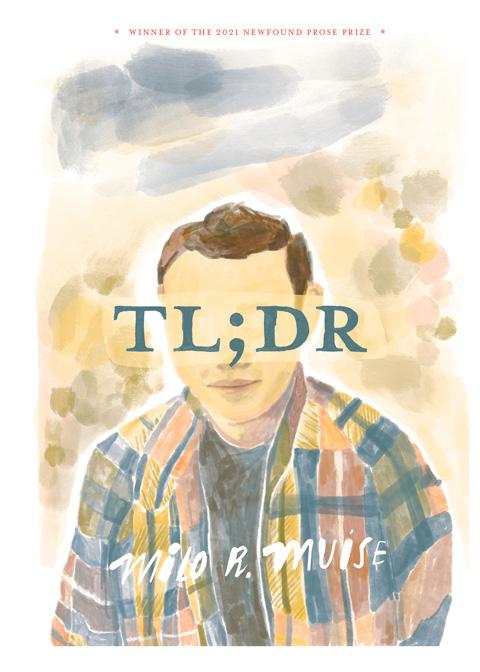














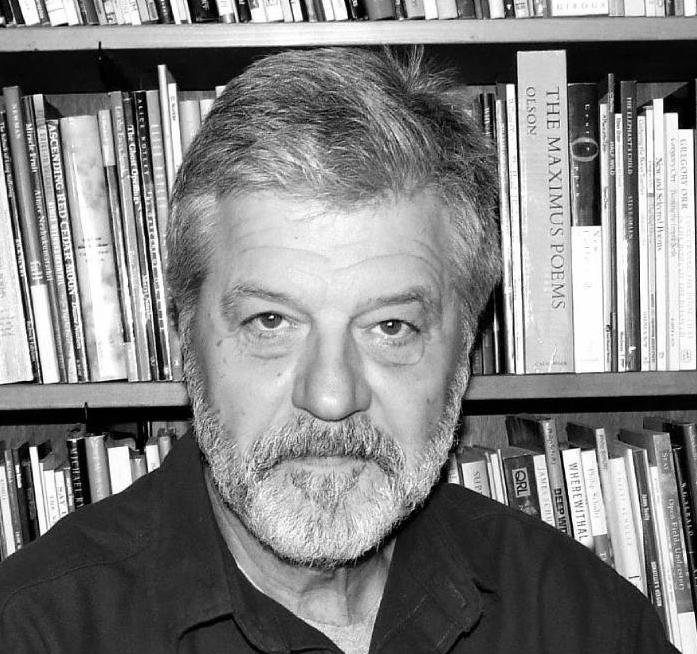


Program History: A Legacy of Writers





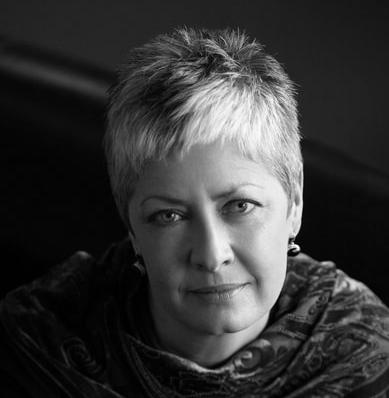

Idaho admitted its first class of seven MFA students in 1994 with a faculty of four: Mary Clearman Blew, Tina Foriyes, Ron McFarland (founder of Fugue ), and Lance Olsen. From the beginning, the program was conceived as a three-year sequence of workshops and techniques classes. Along with offering concentra -
Robert Wrigley
Mary Clearmnan Blew
Lance Olsen
Kim Barnes
Joy Passanante
Tobias Wray
Daniel Orozco
Ron McFarland
Brian Blanchfield
Scott Slovic
tions in writing fiction and poetry, Idaho was one of the first in the nation to offer a full concentration in creative nonfiction. Also from its inception, Idaho not only allowed but encouraged its students to enroll in workshops outside their primary genres. Idaho has become one of the nation’s most respected three-year MFA programs, attracting both field-leading faculty and students. In addition to the founders of this program, notable distinguished faculty have included Kim Barnes, Robert Wrigley, Daniel Orozco, Joy Passanante, Tobias Wray, Brian Blanchfield, Jess Ardnt, and Scott Slovic, whose collective vision, rigor, grit, and care have paved the way for future generations committed to the art of writing.

Brink Hall (above), home of the Department of English & Creative Writing Program, honors Carol Ryrie
a Moscow native, prolific American author, and recipient of a 1936 Newbery Medal.
A Note from Tara MacDonald CHAIR, DEPARTMENT OF ENGLISH

TARA MACDONALD’s research focuses on nineteenth-century British literature, gender, and emotion. Her forthcoming book on Victorian sensation novels and historical understandings of affect is entitled Narrative, Affect, and Victorian Sensation: Willful Bodies. Her first book, The New Man, Masculinity and Marriage in the Victorian Novel (Routledge, 2015), explores literary representations of the New Man, the male counterpart to the feminist New Woman. She co-edited, with Anne-Marie Beller, Rediscovering Victorian Women Sensation Writers (Routledge, 2014) and is currently working on a special issue of Studies in the Novel on “Strange Temporalities: Gender, Time, and the Novel.”
The English Department at the University of Idaho prides itself in offering students a truly interdisciplinary environment, in which Creative Writing faculty work alongside colleagues in Literature, Linguistics, Rhetoric, and Film and Television Studies. As MFA students, you will have valuable time dedicated to workshops with award-winning writers. You will also have the chance to take literature, rhetoric, and theory classes on a range of topics and authors: recent offerings include Contemporary Queer Poetry, Emily Dickinson, Climate Change Fiction, and Writing the Collective. Students also have opportunities to work with the Center for Digital Inquiry and Learning (CDIL) and other institutes on campus. The degree, in other words, is what you make it, and we are here to help design a specialized path for you.

HOW TO APPLY
https://www.uidaho.edu/class/english/academics/graduate/mfa-creative-writing
Please visit the Department of English website (link above) for full application details. All materials must be received by the deadline, so we recommend starting the application process early. We cannot access your materials or consider your application until ALL of your materials, including letters of recommendation and official academic transcripts, are received by the University of Idaho College of Graduate Studies. The bullet points below offer a quick rundown of what you’ll need to apply; please refer to our website for full details, instructions, and link to the online application.
* The application deadline is January 15.
* The application fee is $60.
* Candidates should apply in one genre only (Fiction, Poetry, or Nonfiction).
* GRE scores are NOT required to gain admission to the program. You do not need to take the GRE.
* You must hold a bachelor’s degree from an accredited institution by the time you start your first semester at Idaho.
* You should hold a 3.0 undergraduate GPA (see website for further detail).
* You will need 3 Confidential Letters of Recommendation from those familiar with your work.
* You will need to order Official Transcripts from the institution that granted your bachelor’s degree.
* You will need to write a Statement of Purpose discussing your artistic and academic plans and goals.
* You will need to include a CV or resume citing relevant writing and academic experiences.
* You will need to include a Critical Writing Sample (a critical essay), 20 pages maximum.
* You will need to include a Creative Writing Sample (please select only one genre):
20 pages (maximum) of fiction
20 pages (maximum) of nonfiction
10 pages (maximum) of poetry
International students: You will need a TOEFL score (or equivalent English test) of at least 560 (paper test) or 83 (Internet test) for non‐English speaking students who have not graduated from an English‐speaking institution.
write in idaho
2025 Application Deadline: January 15


Copyright 2025 | University of Idaho Creative Writing Program
Design & Photos (excluding author photos): Michael McGriff

